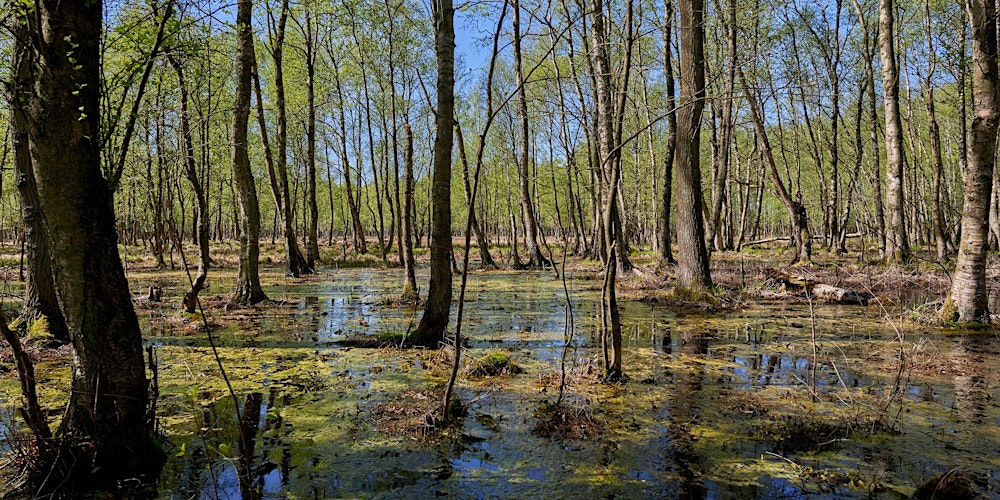Eco-Humanities Research Group - Previous Events
Eco-Humanities Online Lecture Series
Thursday, 2nd December, 5.00 p.m. - 6.15 p.m. Irish time
Jason Groves, University of Washington
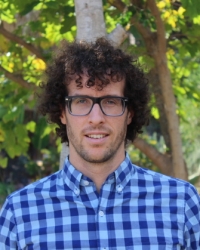
Registration Link: https://www.eventbrite.ie/e/eco-humanities-online-lecture-series-tickets-195796621967
Implicated Language, Implicated Ecologies: Paul Celan and the Eco-Poetics of Memory
When Paul Celan declares in his most famous text on his poetics, “the poem remains open to time, time can enter, time participates,” he also offers an early articulation of an Anthropocene poetics. Beginning with his 1959 Sprachgitter (Language Mesh) collection, Celan’s poetry increasingly demonstrates an openness to deep time and a receptivity to the ways in which the Shoah is registered not only in various landscapes but also in geological processes. My talk will attend to the ways in which this poetry collection accounts for and performs the making-present of the past that is constitutive of memory, namely with an understanding of memory and commemoration as an ecological and multispecies practice. Additionally, I will consider how Celan’s ways of commemorating the Jewish and anti-Jewish ecologies of Auschwitz—environmentally, ecologically, geologically, biogeochemically, planetarily, and linguistically—bear methodological and poetic similarities to recent studies by contemporary Black poets and theorists, including Alexis Pauline Gumbs, Tiffany Lethabo King, and Christina Sharpe, of how the longue durée of the Middle Passage is mediated through oceanic archives and the element of water.
Jason Groves is Associate Professor of German Studies at the University of Washington. His research areas include ecocriticism, interdisciplinary nineteenth-century studies, and the environmental humanities. His monograph, The Geological Unconscious: German Literature and the Mineral Imaginary, appeared with Fordham University Press in July 2020. From 2016-2019 he co-organized the Cross-disciplinary Research Cluster on the Anthropocene, and he currently co-organizes the Colloquium on Transcultural Approaches to Europe, both at the Simpson Center for the Humanities.
University College Cork Eco-Humanities Research Group
Workshop:
Agency, Onto-Epistemology and the ‘more-than-human’
Wednesday 12 January 2022 (online workshop), 9.45am – 4pm GMT
The University College Cork Eco-Humanities Research Group is delighted to host an online inter-disciplinary workshop to explore diverse notions of the agency, ontology and epistemology of the non-human, or ‘more-than-human,’ in the context of contemporary ecological crisis.
All are welcome at this workshop. Attendance at the workshop is free but advance registration is required – please register for the Workshop through Eventbrite here:
|
University College Cork Eco-Humanities Research Group Workshop: Agency, Onto-Epistemology and the ‘more-than-human’ - Wed 12 Jan (online)
www.eventbrite.ie
|
The full programme (including schedule and abstracts) can be accessed here
Eco-Humanities lunchtime seminars
Date: 3 February 2022
Time: 1-2 pm (Irish Time)
Number of speakers: 2
Laurence Davis (Government and Politics, l.davis@ucc.ie)
Title: "Gustav Landauer, Revolutionary Romanticism, and Utopia"
The social philosophy and revolutionary praxis of Gustav Landauer (1870-1919) is paradigmatic of socialist revolutionary romanticism, understood as a worldview combining aspects of socialist theory and romantic anti-modernism, and committed to the more-or-less explicit belief that communist socialism must break fundamentally with industrial/bourgeois civilisation in the name of premodern social, cultural, ethical, or religious values. In this short presentation I elucidate Landauer's critique of the ideology of progress and consider some of its radical political implications in the context of global ecocide.
Miranda Corcoran (English, miranda.corcoran@ucc.ie)
Title: "Dark-Uncanny and Dark-Sweet: Dark Ecology in We Have Always Lived in the Castle and Elizabeth: A Novel of the Unnatural"
This paper focuses on two gothic novels, Shirley Jackson’s We Have Always Lived in the Castle (1962) and Ken Greenhall’s Elizabeth: A Novel of the Unnatural (1976), that imagine the interconnection between the human and the nonhuman as dark, sinister, and even deadly. Here, I draw on philosopher Timothy Morton’s conception of “dark ecology”, the idea that ecology is “dark” because it requires us to consider how we, as humans, are intimately connected with all sorts of nonhuman entities, from trees and flowers to insects, fungi and decaying matter. Ecology, in this sense, does not privilege the human, nor is it necessarily beautiful. I argue that rather than romanticising the relationship between their characters and the natural world, these novels evoke some of the ways in which humanity’s imbrication with the more-more-than-human world can be “dark-depressing”, “dark-uncanny”, and “dark-sweet” (Morton 5).
Registration Link: https://www.eventbrite.ie/e/ucc-eco-humanities-lunchtime-seminar-series-tickets-255190550807
Eco-Humanities lunchtime seminars
Date: 3 March 2022
Time: 1-2:15 pm (Irish Time)
Number of speakers: 4
Crystal Addey (crystal.addey@ucc.ie)
Title: Ancient Greek Philosophy and Contemporary Environmental Crisis: Relational Philosophy, Late Antique Theurgy and Contemporary Indigenous Traditions
Abstract: Are ancient Greek philosophy and religions useful for thinking through and dealing with contemporary environmental crises? Environmental philosophers have examined the ethical, political and cosmological dimensions of the current environmental crises we face. However, ancient Greek philosophy is often blamed for instigating anthropocentric worldviews, ethics and cosmologies. Plato and Neoplatonist philosophers such as Plotinus are often charged with contributing to this anthropocentrism by ontologically separating humans from other animals and the natural world through their metaphysical dualism. Yet some scholars have argued that a more ecocentric perspective in line with – and prefiguring – some of the concepts and frameworks evident within deep ecology can be found in the works of Plato and Plotinus. However, to date, theurgy (a type of religious ritual used by Neoplatonist philosophers in late antiquity) has been almost entirely overlooked within these debates, in line with its broader marginalisation within the history of philosophy. Turning the lens on Neoplatonic theurgy and the practices and worldview exemplified by it, I consider if theurgic frameworks may have any relevance for the current environmental crises we face, by examining: (1) the ecocentric nature of the theurgic worldview and the relationship it envisages between human beings and animals, plants, and the natural world in relation to the divine; and (2) the parallels and points of contact between theurgic/ancient polytheistic-philosophical worldview(s) and contemporary indigenous worldviews.
Jenny Butler (j.butler@ucc.ie)
Title: Guardians of the Earth: Eco-Cosmology and Contemporary Paganism
Abstract: Contemporary Pagan cosmology is holistic, resting on the fundamental notion that a spiritual energy infuses all that exists and as such this religious movement has been described by some scholars as a form of modern animism. Based on ethnographic research with practitioners of witchcraft and druidism, this presentation explores the special status of the natural world in contemporary Irish Pagan discourse and practices, and the connection between environmental activism, “Earth healing” rituals, and spiritual worldviews.
Gert Hofmann (g.hofmann@ucc.ie)
Title: Prolegomena for a Poetics of the Body as a Theory of Eco-human Writing
Abstract: The Poetics of the body conceives of a poetic theory of subjectivity which reflects critically on cognitive science and eco-science as the lead sciences of our age. I call this theory “eco-human”, because it hopes to offer an alternative to the discourses of transhumanism and posthumanism. The Poetics of the Body is an ethically marked poetic which, based on an elementary body-awareness, aims at overcoming the fundamental anthropocentrism of all prevailing human traditions of scientific knowledge and philosophical understanding. It is a theory that shows affinities and sympathies with Emmanuel Lévinas’ humanistic ethics of “the other human”, but expanding it to the presence of the other life as the other subject – not as another object of cognitive appropriation.
Kian Mintz-Woo (mintzwoo@ucc.ie)
Title: On the Importance of Climate Civilization Collapse
Abstract: In this paper, we consider the implications of anthropogenic climate change driven civilization collapse (climate collapse, for short) for climate ethics. First, we argue that climate collapse is a real possibility: many experts believe that 4°C could lead to collapse, and the Intergovernmental Panel on Climate Change’s latest (2021) assessment report’s high-emission socioeconomic pathways include that level of warming in their very likely (66-100%) range by 2100. Second, we argue that taking the risk of climate collapse seriously challenges two longstanding assumptions in climate ethics: (a) stable governance capable of promoting justice will exist in the long-term, and (b) current generations receive little or no benefit from climate change mitigation. This paper then argues that rejecting these assumptions matter, because their rejection explains how urgent climate action can be practically justified, or even required, for currently living people.
Registration Link: https://www.eventbrite.ie/e/copy-of-ucc-eco-humanities-lunchtime-seminar-series-tickets-274711729177
Date: 7th April, 2022
Time: 17:00 - 18:30 p.m. (Irish Time)
Title: "Some Precious Dream": Energy Futures in Contemporary Irish Fiction
Speaker: Sharae Deckard, Associate Professor in World Literature, UCD
Registration Link:
Sharae Deckard is Director of the UCD Environmental Humanities research strand, and a member of the Environmental Humanities Steering Group for the Irish Humanities Alliance. Her research interests intersect environmental criticism and world-systems approaches to world literature, ecology, and culture. In Autumn 2020, she joined Upamanyu Pablo Mukherjee as academic Series Editor of Palgrave's New Comparisons in World Literature series. Her books include a monograph, Paradise Discourse, Imperialism and Globalization (Routledge 2010) and Combined and Uneven Development: Towards a New Theory of World-Literature (co-authored with the Warwick Research Collective, Liverpool UP 2015; translated into Portuguese for Unicamp, 2020). With Rashmi Varma, she is co-editor of Marxism, Postcolonial Theory, and the Future of Critique: Critical Engagements with Benita Parry (Routledge 2018), and with Stephen Shapiro, she is editor of World Literature, Neoliberalism and the Culture of Discontent (Palgrave 2019), winner of the BACLS Edited Collection Prize.
Abstract:
This paper takes a first step toward theorizing “the energy unconscious” of post-1970s Irish culture, by exploring the “material relating to energy forms that can be mined and discerned throughout the history of literature.” I follow Graeme Macdonald’s call for energy criticism that examines the relationship between culture and environmental history in order to “advance our understanding not only about the present and future energy crises we face, but also the manner in which we (fail to) envisage and conceive energy as a matter for culture as much as it is cultural matter.” Taking a broad approach to “energy futures” across a range of genres, I analyze the ways in which energy imaginaries feature in a range of contemporary Irish fiction, focusing on how these novels imagine unevenness, spatialized inequality, and dependency as constitutive features of the neoliberal energy regime in its Irish manifestation.
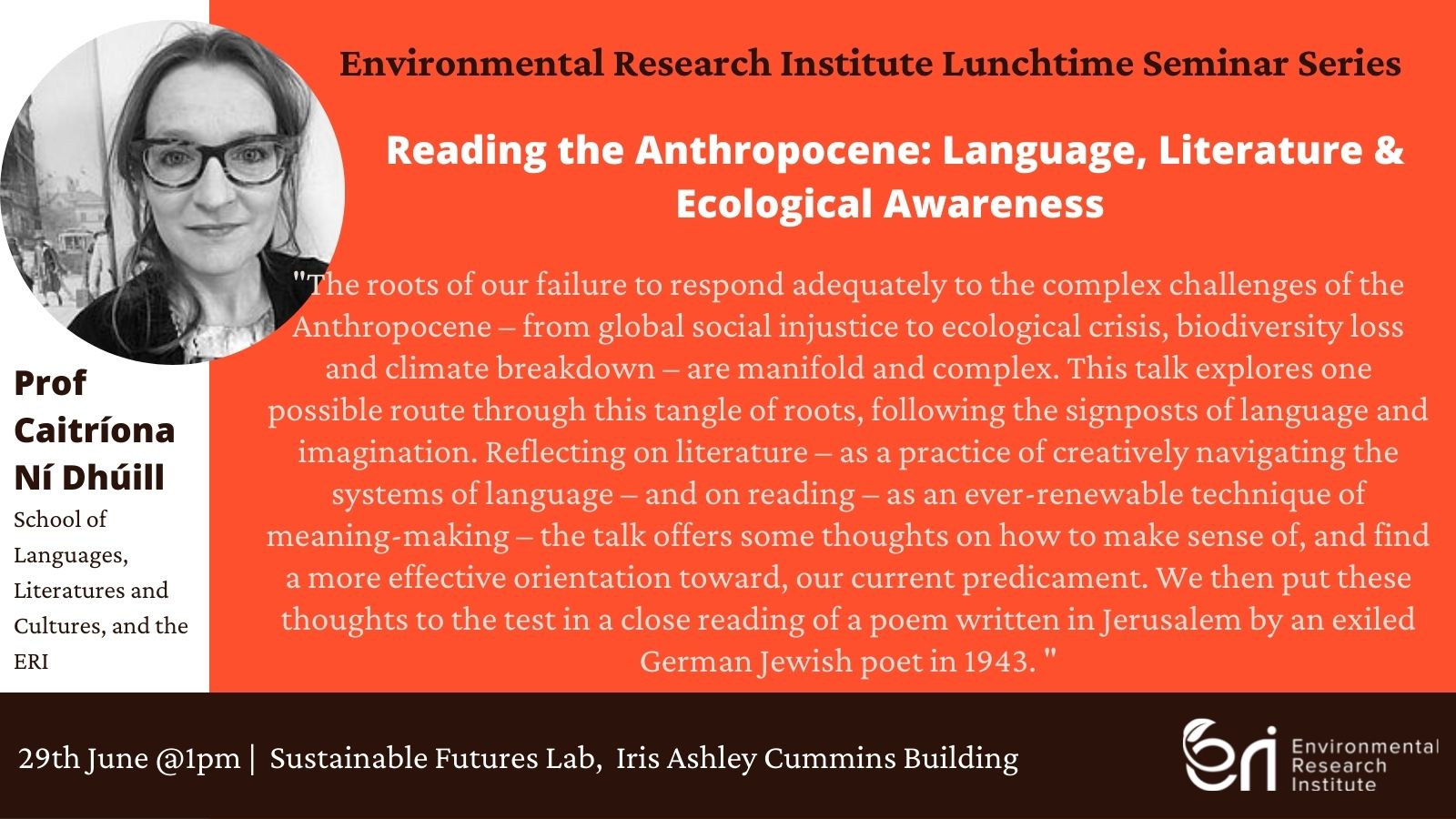
Future Humanities Institute Inaugural Lecture Series
Burning Up With Rilke: Elegy, Ecology, Action
Thursday 13 October 2022 @ 5 pm in Boole 4
Speaker: Prof. Caitríona Ní Dhúill, Department of German, SLLC / ERI
Respondent: Prof. Astrid Wingler, School of Biological, Earth and Environmental Sciences / ERI
An open discussion and wine reception will follow the lecture and response
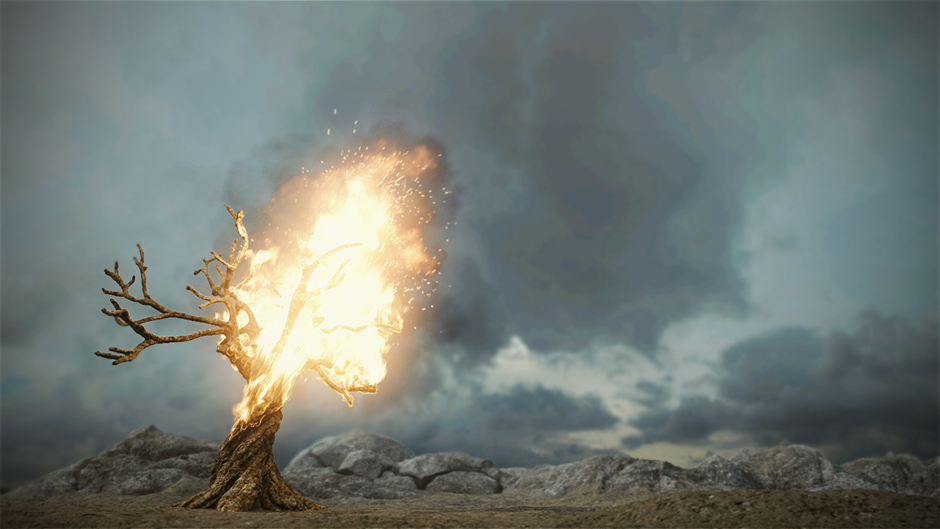
How do we read major works of literature and art in new ways in the face of climate change, and how does the practice of attentive reading help us to navigate an increasingly uncertain future? Rainer Maria Rilke’s Duino Elegies – completed a century ago, the same year in which Eliot’s The Waste Land and Joyce’s Ulysses were published – serve in this lecture as a challenge to the ‘Future Humanities’ in an era of ecological crisis. The lecture asks how we can encounter Rilke’s poems on their terms and our own, while disentangling our readings from outmoded discourses of mastery and mystery and from the industrious gatekeeping of professionalised philology. Finding ourselves at the crossroads between ecocidal destruction and necessary transformation, we can do worse than slow down, acknowledge our differences, and learn to read with more care. Rilke’s Elegies can allow us to do precisely that; what we do after we read them is up to us.
Contact: j.kapalo@ucc.ie
Anthropocene Austria special issue launch

Title: 'Anthropocene Austria: book presentation'
17.2.23 @ 16:00 (GMT) / 17:00 (CET/MEZ) register here to receive the link.
Text: This online event marks the publication of the latest volume of Austrian Studies. 'Anthropocene Austria' examines the presence of the now well-established paradigm of the Anthropocene — which perceives humanity as a geological force that leaves an indelible trace on the fabric of the planet — in Austrian literature and culture. In eleven wide-ranging contributions, the volume highlights the entanglements of Austrian literature, film and contemporary culture with environments and ecologies in the age of climate breakdown. Join us for an online launch and discussion with the editors Dr Nicola Thomas (Lancaster University) and Prof. Caitríona Ní Dhúill (University College Cork / University of Salzburg), in conversation with Prof. Dr. Eva Horn (University of Vienna / Vienna Anthropocene Network).
Vienna Anthropocene Network event in cooperation with University College Cork Eco-Humanities Research Group.
Austrian Studies is a peer-reviewed yearbook published by the Modern Humanities Research Association.
Table of contents, 'Anthropocene Austria' (Austrian Studies volume 30):
Introduction
Caitríona Ní Dhúill and Nicola Thomas
Gardening as an Ecological and Educational Project: Stifter’s Anticipation of Anthropocene Thinking and Aesthetics in Der Nachsommer
by Axel Goodbody
‘So lange die Natur so bleibt’: The Alpine Abstract in Stifter’s ‘Bergkristall’
by Stefanie Heine and Brian Alkire
Anthropocene Realism: On Nikolaus Geyrhalter’s Erde, and the Limits of a Cumulative Aesthetic
by Alexis Radisoglou
Portrait of a Hoping Species: on the Anticipatory Realism of Nikolaus Geyrhalter’s Homo Sapiens
by Rafael Dernbach
‘Ein Mann, dem die Welt vertraut’: Kurt Waldheim’s Global Legacy in Ruth Beckermann’s Waldheims Walzer
by Dora Osborne
Doom and Bloom: Friederike Mayröcker’s Anthropocene Lateness
by Nicola Thomas
Plant Ontology, Non-Human Becoming and Acoustic Materiality in Oswald Egger’s 'Herde der Rede'
by Teresa Ludden
Soundwalks Through the Anthropocene: The Acoustic Landscape in Josef Winkler's Der Stadtschreiber von Kalkutta (2019)
by Daniela Dora
Nature and the ‘National Brand Austria’: Contested Concepts in Raphaela Edelbauer's Das flüssige Land and Robert Seethaler's Ein ganzes Leben
by Rebecca Wismeg-Kammerländer
In Echo’s Cave: Gendered Guilt and Anthropocene Repercussions in Texts by Christoph Ransmayr and Valerie Fritsch
by Conor Brennan
An Interview with Philipp Weiss
by Caitríona Ní Dhúill

Thursday 23rd February 2023 5.00-5.30pm (1700-1730)
Benjamin Gearey (Department of Archaeology, University College Cork)
Report on COP 27
Benjamin Gearey will present a brief and informal report about COP 27, which he attended as a member of the UCC delegation.
Benjamin Gearey is Lecturer in Environmental Archaeology in the Department of Archaeology at University College Cork. He has a wide range of research interests focussed on wetland environments and especially the archaeological and palaeoenvironmental records of peatlands. He is currently editor of The Journal of Wetland Archaeology and elected member of the scientific advisory board, Joint Planning Initiative, Cultural Heritage and Global Change, Europe
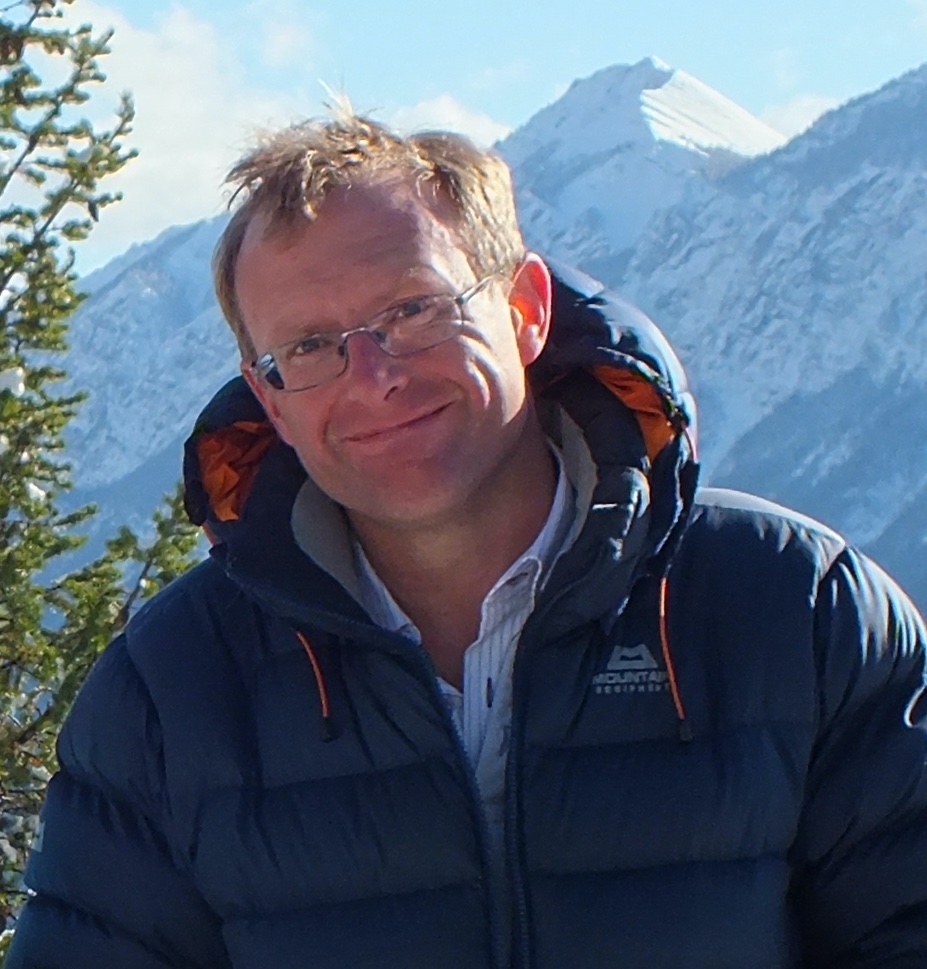
Thursday 2nd March 2023 4.00-5.15pm GMT (1600-1715)
Register here
Ecological grief in ancient Mediterranean culture:
Aelius Aristides, Philostratus and the Smyrna earthquake of 178 CE
Jason König (School of Classics, University of St Andrews, and Co-director of the St Andrews Centre for Ancient Environmental Studies)
My goal in this lecture is to ask what we can gain from bringing ancient responses to environmental damage into dialogue with their modern equivalents. I start by looking at some similarities and differences between ancient and modern representations of ecological grief. To what extent are modern versions of that phenomenon anticipated in the literatures of classical antiquity? How far can we use that comparison to shed new light on both ancient and modern conceptions? How far can we reconstruct ancient experiences of ecological grief, and are there ways in which that process can act as a resource for environmental thinking in the present? As a case study for those questions I look at the work of the second-century CE Greek orator Aelius Aristides and especially his responses to the Smyrna earthquake of 178 CE, and at Philostratus’ famous depiction of the emperor Marcus Aurelius’ grief on hearing news of the destruction of the city.
Jason König is Professor of Greek at the University of St Andrews, and co-director of the St Andrews Centre for Ancient Environmental Studies. He works broadly on the literatures and cultures of the Roman empire, and on the history and representation of human-environment relations in classical antiquity. His books include The Folds of Olympus: Mountains in Ancient Greek and Roman Culture (Princeton University Press, 2022).
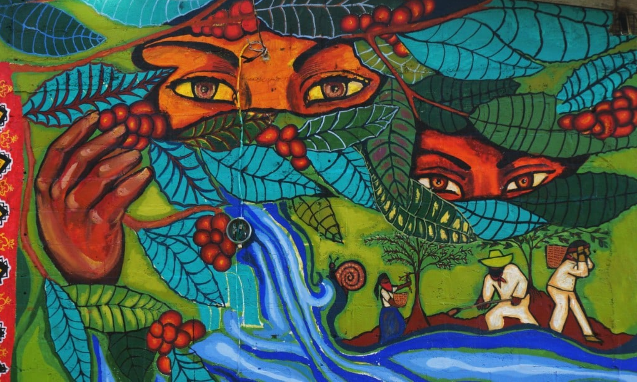
Thursday 30th March 2023 4.30-5.45pm BST/DST (1630-1745)
Laurence Davis and Matt York (Department of Government and Politics, University College Cork)
Anarchist Ecologies: Grounded Utopias and the Deep Commons
The Eco-Humanities Research Group at University College Cork aims to explore how work in the humanities can help individuals and communities, including communities of researchers in the social and natural sciences, to navigate the growing demands of contemporary ecological crises. In this joint public lecture, Laurence Davis and Matt York share their respective research on two distinct but closely related conceptual tools intended to facilitate radically transformative political imagination in a time of ecological collapse.
In the first part of the lecture, Laurence Davis will elucidate the concept of ‘grounded utopias’. His chief argument is that utopian imagination, long derided as either hopelessly impractical or dangerously idealistic, can contribute meaningfully to much wider processes of urgently necessary ecological and social regeneration. However, it can do so only if it first comes to grips with utopia’s own complicity with modern conceptions of progress and perfectibility that have legitimized settler colonialism, the genocide of Indigenous peoples, the violent subordination of women and racial and sexual ‘others’, ecocide, and a ‘grow or die’ form of civilization that is now threatening the very existence of all life on the planet. In his remarks Davis will critically analyze (1) ‘transcendent’ forms of utopian thought and imagination that have historically inspired and helped to maintain interlinked systems of domination ranging from capitalism to industrialism, colonialism, patriarchy, and megatechnics; and (2) ‘futures thinking’ of the sort that has guided and informed a range of contemporary academic research projects. By way of a radical and transformative constructive alternative, he will draw on a range of literary (William Morris, Ursula K. Le Guin, Starhawk) and social movement (Zapatistas in Mexico, Rojava Revolution in northern Syria) case studies, as well as philosophical reflection by relatively neglected German/Austrian-Jewish revolutionary romantic thinkers (Gustav Landauer, Martin Buber), to sketch the contours of and argue for a terrestrial ecotopianism that can help humanity build beyond the Necrocene.
Inspired by such grounded utopias and building on the growing body of work that repositions love, care, and solidarity relations as central to social reproduction and fundamentally constitutive of society, Matt York will then discuss his research on the Deep Commons. This ongoing enquiry works to broaden our understanding of what constitutes revolutionary transformation towards a far more comprehensive redefinition of our social ecologies across all spheres of life. Critically, the aim is to extend the concept of ‘commons’ far beyond the mere management of resources with which humans have a relationship of stewardship, and to radically reimagine human-nature relations within our more-than-human conditions. Drawing on a recent collective visioning project involving a global cross-section of anti-capitalist, ecological, feminist, and anti-racist activists, Matt will explore how such a radical interrelationality might thus serve as the basis for a co-emergent relational ethics of solidarity and care.
Laurence Davis and Matt York lecture in the Department of Government and Politics at University College Cork. Laurence has published widely on political theory and ideologies, focusing on radical political thought, including anarchist and utopian studies, democratic and revolutionary theory, and the politics of art, work, ecology, love, and social change. He is a Series Editor of the Manchester University Press Contemporary Anarchist Studies Series, Western Europe editor of the international journal Interface: a journal for and about social movements, and a founding member and current co-convenor of the Anarchist Studies Network of the UK Political Studies Association. His publications include the books Anarchism and Utopianism (Manchester University Press, 2014) and The New Utopian Politics of Ursula K. Le Guin’s The Dispossessed (Lexington Books, 2005). Matt York’s Love and Revolution: A Politics for the Deep Commons is forthcoming from Manchester University Press in March 2023. He currently facilitates the Deep Commons collective visioning project: www.deepcommons.net.
Thursday 11th May 2023 4.00-5.15pm BST/DST (1600-1715)
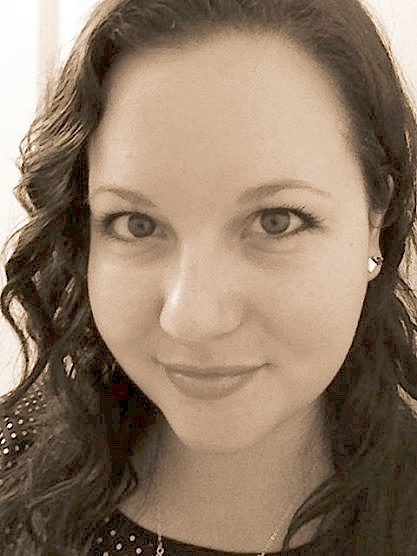
Sarah Bezan (Department of English and Digital Humanities, and Radical Humanities Laboratory, University College Cork)
Thylacinema: De-Extinction as Multi-Medial Adaptation
Julia Leigh’s award-winning novel The Hunter (1999) and its cinematic adaptation directed by Daniel Nettheim (2011) exemplify how narratives of extinction become, in the words of Stephanie S. Turner, “open-ended” in the wake of “genome time” (2008). Building on Turner’s critique, I examine how extinction narratives have also become multi-medial in a biotechnological age. In 2011, for instance, de-extinction scientist George Church and geneticist Seth Shipman utilized the gene editing tool CRISPR to successfully encode Edward Muybridge’s famous 1889 film of a galloping horse in bacterial DNA. Anticipating the genomic sequencing of the extinct thylacine, Rachel Berwick’s art installation Hovering Close to Zero (2000-2006) likewise reconfigures Muybridge’s zoopraxiscopic grid in order to break down the frames of footage of the next-to-last thylacine, Benjamin, from Hobart Zoo in 1936. In Berwick’s thylacinematic work, the thylacine is reanimated as it emerges out of, and extends beyond, the stop motion frames of the cinematic grid. Along with Berwick’s installation, Nettheim’s film and Leigh’s novel showcase the cross-pollinatory potential of genomic and creative adaptations. This multi-mediality also generates new ways of thinking about aura in the age of biocybernetic reproduction (WJT Mitchell). Drawing from theoretical work on the expressions of DNA codes (Judith Roof) and creative adaptations of animals in text and film (Linda Hutcheon, Akira Lippit, Antoine Traisnel), I argue in these re-creative adaptations of the thylacine, montage and repetition become the modes through which to re-sequence, but more importantly to temporally extend and multiply, the narratives of extinct species.
Dr Sarah Bezan is Lecturer in Literature and the Environment in the School of English at University College Cork, where she is a founding member of the Radical Humanities Laboratory. Her work broadly examines the entangled social and ecological dimensions of species loss and revival in contemporary settler colonial literature and digital media/arts. Sarah is co-editor with Robert McKay of the recently published volume Animal Remains (Routledge 2022) and with James Tink of Seeing Animals After Derrida (Rowman & Littlefield 2018) along with special issues on “Sex and Nature” (Environmental Humanities 2022), “Coastal (Post)humanities” (Anthropocenes 2022), and “Taxidermic Forms and Fictions” (Configurations 2019). Her first book, Dead Darwin: Necro-Ecologies in Neo-Victorian Culture, is under advance contract with Manchester University Press
Thursday 1st June 2023 4.00-5.15pm BST/DST (1600-1715)
Simone Horstmann (Institute of Catholic Theology, Technical University of Dortmund)
To Believe in the Wild. A Rereading of the Biblical Dominion Mandate
The so-called mandate of human dominion over (other) animals (Gen 1:28) is certainly one of the most controversial and much discussed verses in the Bible. In the context of the Anthropocene, especially in the face of man-made violence against animals, its precarious meaning is once again intensified. While the classical critique of the dominion mandate had mostly attempted to analyse its historical consequences, to trace its exegetical and intra-textual meaning or even to excuse it apologetically, the lecture will be concerned with examining the deeper meaning of that religiously connoted speciesism which is expressed in the dominion mandate: In the form of an alterity-theoretical re-reading of Gen 1:28, the question will be explored to which experiences of wildness, unruliness and uncontrollability of animals Gen 1:28 responds and how these experiences are still morally relevant today. This approach is thus less concerned with questions of later text reception than with reconstructing the hidden pre-texts of Gen 1:28: The dominion mandate is thus treated as a "palimpsest" (Gerard Genette) - as a text that bears witness to another, erased text. Inspired by Levinas and Foucault, the aim is to sketch out a knowledge archaeology of creation theology that pursues the question of how the present-day, ultimately biopolitical violent relationship of humans to other animals is based on experiences that must be re-read and theologically re-evaluated, especially in the Anthropocene.
Simone Horstmann, Dr. phil., is a research associate at the Institute of Catholic Theology at the Technical University of Dortmund (North Rhine-Westphalia, Germany). Her work focuses on the areas of a post-anthropocentric theology and questions of animal ethics. Recent publications focus on "Religious Violence against Animals" and "Interspecies Learning".
Thursday 12th October 2023: 4.00-5.15pm (DST/BST)
Khan Touseef Osman (University of Salerno)
Nation, Nature and Narrative in the Time of the Planetary Crisis: Eco-political Consciousness in Contemporary Bangladeshi Anglophone Novels
Register here: https://tinyurl.com/st887z2z
Amitav Ghosh in his novel Gun Island (2019) and non-fiction work The Nutmeg's Curse: Parables for a Planet in Crisis (2021) has written about the increased trend of Bangladeshis taking perilous routes and passages to make it into Europe illegally despite their country being widely celebrated as a neoliberal economic success. The lecture begins by identifying this as the Bangladesh paradox and attempts to explore the maximized precariousness of a large section of Bangladeshi population as a result of the acceleration of capitalist modernity in recent decades. The dispersal of Bangladeshis appears to be a symptom of the planetary crisis – one whose origin Ghosh traces back to settler colonialism and its metaphysic of inertness that imagines a rift between the agentic human subject and the “brute” nature, evolving into a full-blown disaster on a planetary scale due to the unrestrained capitalist acceleration in the age of neoliberalism. In his analysis, the maximized precariousness of Bangladeshis is a consequence of the structures of colonialism being perpetuated, yet masked, by hegemonic neoliberal modernity in a world sharply divided between the Global North and South, wreaking havoc on the human and non-human inhabitants of their nation. It is this politics of invisibility that the eco-politically conscious works of the Bangladeshi-origin, multiply-rooted authors attempt to subvert through novels like Arif Anwar’s The Storm (2018), Numair Atif Choudhury’s Babu Bangladesh! (2019) and Tahmima Anam’s The Bones of Grace (2016). These novels bring to the surface the multidirectionality of violence experienced within the affective order of the everyday in such a location of the Global South as Bangladesh, but, more importantly, they deconstruct the cartesian dualism between subjectivity and objectivity, steering clear of the nature-culture binary, often through their deep ecological awareness. In my reading of these novels, nationhood in the Indian subcontinent has emerged as a consequence of the biopolitical manipulation of identities within a colonial framework and has carried the metaphysic of inertness to impossible extremes in the post-independence context. My lecture will conclude by commenting on the representational aspects of eco-politically conscious literatures rooted, at least partially, in the Global South that gesture towards an understanding of reality where the category of the uncanny is an essential constituent.
Dr. Khan Touseef Osman is a South Asian academic and researcher. He did his PhD in Literary Studies in English at the University of Kashmir. Dr. Osman also worked as a Postdoctoral Researcher in Studies in Historical Trauma and Transformation at Stellenbosch University, South Africa. He is now finishing another PhD in the area of Comparative Literary and Historical Studies at the University of Salerno, Italy. Dr. Osman has received several prestigious scholarships, such as South Asia Foundation scholarship, Andrew Mellon Foundation postdoc fellowship and the University of Salerno scholarship in its XXXV cycle. He has taught and done research at Asian University for Women (AUW) and some other universities at home and abroad.
Thursday 7th December 2023, 4.00-5.15pm (GMT)
Shelbi Nahwilet Meissner (University of Maryland), and Andrew Frederick Smith (Drexel University)
Climate Crisis as Relational Crisis: Centering Indigenous Feminist Conceptions of Responsibility in Environmental Discourse
Register here: https://tinyurl.com/yf8pppfc
It is commonly assumed that we currently face a climate crisis insofar as the climatological effects of excessive carbon emissions risk destabilizing advanced civilization and jeopardize cherished modern institutions. The threat posed by climate change is treated as unprecedented, demanding urgent action to avert apocalyptic conditions that will limit or even erase the future of all humankind. In this essay, we argue that this framework—the default climate crisis motif—perpetuates a discursive infrastructure that commits its proponents, if unwittingly, to logics that ultimately reinforce the dynamics driving climate change and its attending injustices. By centering Indigenous feminist environmental discourses, which privilege the role of richly interweaving networks of responsibilities composing extended more-than-human kinship arrangements, we contend that climate crisis is instead primarily a manifestation of devastating multidimensional relational disruptions of Indigenous lands and lives. More pointedly, it is a rebound effect of centuries of accumulating colonial injustices against responsible lifeways that are critical for socioecological adaptability and responsiveness. Framing climate crisis as relational crisis hereby creates discursive space for much needed transformational Indigenous feminist visions for justly and effectively addressing climate change.
Shelbi Nahwilet Meissner (Luiseño & Cupeño) is an Indigenous feminist philosopher. Shelbi researches, teaches, and consults on Indigenous research and evaluation methods, cultural and language reclamation, Indigenous epistemologies, Indigenous feminist interventions in critical social work, and land-based feminist coalition-building. Shelbi is fascinated by the intersections of Indigenous knowledge systems, caretaking, power, and trauma. Shelbi is a proud first-generation descendant of the La Jolla Band of Luiseño Indians, and is of both Luiseño (Payómkawichum) and Cupeño (Kúupangaxwichem) descent. She is an assistant professor in the Harriet Tubman Department of Women, Gender, and Sexuality Studies at University of Maryland College Park and the founding director of the Indigenous Futures Lab, a hub of Indigenous feminist research and evaluation.
Andrew Frederick Smith, kinless (i.e., a settler/colonizer/occupier), is a professor of philosophy and environmental studies at Drexel University in Philadelphia. He also is department chair of the Department of Biodiversity, Earth and Environmental Science. His recent research is inspired by the pursuit of what Kim TallBear calls “settler ontocide,” which has led him to focus on the philosophical dimensions of Indigenous ecological knowledge systems, Indigenous climate/food justice, and Indigenous feminisms. His latest book is The Threefold Struggle (SUNY 2022).
Thursday 25th January 2024: 4.00-5.15pm (GMT)
Jesse Peterson (University College Cork)
Ecologizing Death through an Ecohumanities Approach
Register here: https://www.eventbrite.ie/e/ecologizing-death-through-an-ecohumanities-approach-tickets-781243699937?aff=oddtdtcreator
Scholarship on death typically focuses on the death of humans, overlooking the wider socio-ecological factors involved in processes around death. However, situating death within an ecohumanities approach carries potential to expand and enrich our understanding of nature as a matter of ‘deathly concern.’ In this lecture, Peterson will present on ecohumanities and death, highlighting emerging themes and contributions from the newly published (9 Jan. 2024) volume, Death’s Social and Material Meaning Beyond the Human, edited by Jesse D. Peterson (UCC), Natashe Lemos Dekker (UL), and Philip R. Olson (VT). Published as part of the Death and Culture Series by Bristol University Press, this volume explores death beyond the human to reveal complex interconnections among human and more than human creatures, entities, and environments. Using examples from this publication—such as the death of waterbodies (Peterson, 2024), the ‘ecological afterlives’ (Olson, 2024; Gould et al., 2024; Holleran, 2024) of the human dead, or the agency of parasitic and microbial lives (Zanzu, 2024; Hoerst, 2024; Yepez & Johnson, 2024)—Peterson will discuss and reflect on the social, cultural and political importance of nonhuman death, the relational materiality of the human corpse, and concerns over ‘ontological security’ (Giddens, 1984) offered by novel forms of care and labour.
Dr Jesse D. Peterson (he/him) works as a Lecturer with the Radical Humanities Laboratory and Department of Geography at University College Cork. He researches societal relationships to ecological challenges using transdisciplinary methods, having focused on issues related to oceans and biodiversity. His research addresses topics such as the production of ocean health and pollution, more-than-human relationships, socio-ecological death, citizen science, biodiversity data, and innovation in research methods, with publications in peer-reviewed journals, edited collections, literary magazines, and museum exhibits, such as Geohumanities, The Digital Environmental Humanities Handbook, Green Letters, Minerva, saltfront and more.
Spring 2024 Eco-Humanities Research Group Lecture Series Programme and Events
Thursday 8th February 2024: 4.00-5.15pm (GMT)
Bron Taylor (Rachel Carson Centre for Environment and Society)
Exhibitionism:
Animism, Kinship & Conservation at Science & Art Museums around the World
Register here: https://www.eventbrite.ie/e/eco-humanities-research-group-public-lecture-from-bron-taylor-tickets-818214982037?aff=oddtdtcreator
In recent decades scholars from diverse disciplines in the Arts and Sciences have been advancing animistic spiritualities, kinship feelings toward non-human organisms, and eco-organicist/Gaian worldviews, in order to promote proenvironmental attitudes and behaviors. Providing evidence from Europe, Africa, and the Americas, I provide photographs and video excerpts from such venues to argue that curators at many of the world’s museums, while sometimes influenced by such scholars, have become influential promoters of such ‘dark green’ nature spiritualities, values, and behaviors. By so doing they provide paths to spirituality, meaning, and purpose that are especially relevant for those who have left behind the world’s still predominant religions. These venues offer religious forms that echo some longstanding religious and mystical perceptions while enriching and reinforcing them with scientific understandings. These spaces also function as shrines and pilgrimage sites for whose sharing deep feelings of belonging and connection to nature.
Bron Taylor is an interdisciplinary environmental studies scholar whose research and writing explores, through the lenses of the sciences and humanities, the complex relationships religion, ecology, ethics, and the quest for sustainability. His books include Dark Green Religion: Nature Spirituality and the Planetary Future (2010), Avatar and Nature Spirituality (2013), and Ecological Resistance Movements (1995). He is also editor of the Encyclopedia of Religion and Nature (2005) and the Journal for the Study of Religion, Nature and Culture. Taylor is Professor of Religion and Nature at the University of Florida and a Fellow of the Rachel Carson Center for Environment and Society in Munich, Germany. In 2017 he was recognized with a Lifetime Achievement award by the International Society for the Study of Religion, Nature and Culture. See also www.brontaylor.com and at Twitter/X @BronTaylor
